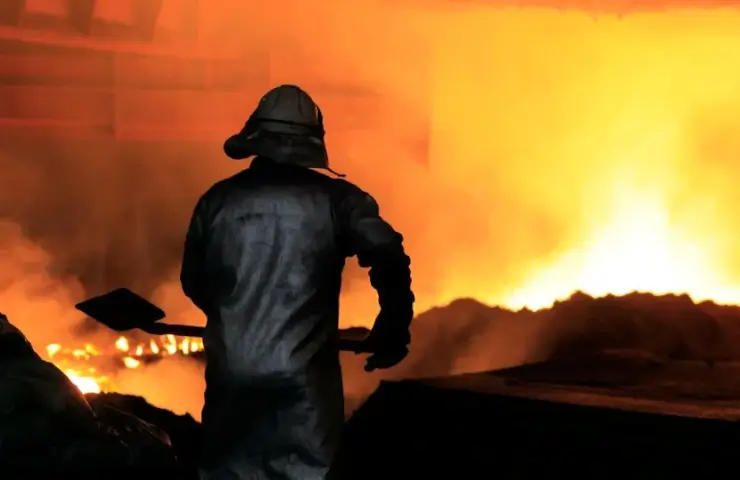According to the British agency MEPS, prices for steel products continue to fall in the European Union and inventories in warehouses of both dealers and manufacturers continue to grow. MEPS blamed the overstocking of European warehouses with steel on "panic purchases made in March and April" and a sharp drop in demand after Easter.
"Faced with large inventories and low order volumes, distributors have drastically limited new orders from local suppliers, and steel mills have been unable to cut capacity in time to prevent a sharp drop in steel prices in Europe," the agency notes.
>At the same time, according to MEPS, the current level of rolled metal production in the EU still exceeds demand.
At the same time, there are indications that the bottom may have been reached. Smelting costs are close to break even, despite lower raw material costs, which partially offset the decline in the cost of rolled products. A sudden surge in scrap metal prices triggered by new orders from Turkey has stabilized raw material prices, at least in the short term.
The efforts of the Chinese government to increase domestic demand for steel have not yet yielded results. Sales in China remain weak and steel mills are cutting production. This, in turn, will lead to a reduction in the cost of raw materials.
After European sanctions, Russian metallurgists redirected sales of slabs and billets to Asia and the Middle East, selling them at low prices. Directly or indirectly, these supplies contribute to the import pressure faced by European manufacturers.
The looming threat of a shortage of gas in Europe remains, and with it the prospect of a reduction in steel capacity. Nord Stream 1, a gas pipeline under the Baltic Sea from Russia to Germany, in which Gazprom owns 51 percent of the shares, is closed for maintenance. German consumers are concerned that deliveries will not resume after the planned 10 days.
The plan of the German authorities to eliminate possible power outages gives priority to domestic consumers. Heavy industry consumers, such as steel mills, will be the first to cut production. The second stage, rolling and wire drawing, will follow the steelworks. The forced reduction in production will lead to upward price pressure, even though demand will also decline.
Industry reports regularly highlight investments in new and existing manufacturing facilities that are part of the steel industry's drive towards green steel. You have to pay for all this. In the short term, manufacturers, as well as distributors, can survive on the profits for the first half of this year.
Europe is entering a holiday period when demand for steel traditionally falls. Planned and extended maintenance of the mill during the summer will reduce production, partially easing the negative pressure on the baseline. This alone will not be enough to support prices. Recovery will only occur once buyers need to restock after the holidays.




